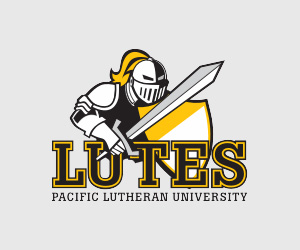
Athletics Program Review, 2021-2022
Executive Summary
During the 2020—2021 academic year, the Athletic Program Review was initiated in keeping with our PLU Strategic Plan to examine the overall health of our entire athletic program. This process looked at several factors, including equitable opportunities for participants, the viability of the programs, the number of interested student-athletes, and the revenue and facilities needed to properly support the teams at the varsity level.
Based on recommendations from the internal Athletic Program Review, the Athletic department held an external review and proactive title IX audit, conducted by 3 Fold Group. This review, conducted during the fall semester of 2021, focused on gender equity, the purpose of athletics at PLU, and adherence to general operational best practices by successful Division III athletics programs.
From the two reports, the Athletic department has since created a summary of actionable next steps, with some changes already being implemented during the 2021-2022 academic year.
A few major themes emerged within these two reports. One was the need to further invest in facilities and employees. The reports found a need to prioritize facility improvements to correct gender inequities. That includes focusing on improving the softball stadium, improving locker room spaces for teams, creating private office space for all head coaches, and setting aside additional space for athletic training services.
In regards to staffing, the report identified the need to add assistant coaches to women’s sports to address the gender disparity in the proportion of student-athletes and the number of assistant coaches per gender. The reports emphasized the need to elevate all head coaches to full-time employee status while adding more administrative support positions, including separating the Title IX Coordinator role from the responsibility of the Assistant Athletic Director/Senior Women’s Administrator.
Both reports touched on the importance of addressing student-athlete demographics. Specifically, the reports identified the need to better engage with BIPOC student-athletes and be intentional about connecting students of color with campus resources. Some of that work has already begun, with the department developing an Anti-Racism and Social Justice statement in the fall while also forming a Diversity and Inclusion Committee. The department also continues to work with offices across campus, including The Diversity Center and the Center for Gender Equity, in pursuit of this goal.
Budgeting was a major point of emphasis in both reviews. Both called for budget reports that will chart a path to fully funding the true cost of intercollegiate athletics. This process will clarify department goals and will include maintaining standards in regards to away travel to ensure a consistent student-athlete experience when it comes to hotels, meals, and program recruitment. The budget process will also clarify the differences between annual S&P and capital expenditures while utilizing a zero-based budget.
The external report also identified the need to develop roster goals for each sport, asserting that there is room for roster growth in most athletic programs on campus. Athletic roster growth can be leveraged to increase overall campus enrollment while also having a positive effect on student retention. The Title IX report emphasized that to remain compliant with the law, PLU’s best course of action is to identify growth opportunities for women based on the interest and abilities of the student body.
Both reports highlighted the need to streamline department operations. Recommendations include moving to fully electronic end-of-season feedback forms, utilizing recruitment-tracking software, and implementing policies that provide a more transparent and equitable way to schedule facility space. The reports identified a need to have more formal team and program policies put into practice, including defining fundraising expectations for each program.
The external report identified a need to clearly define fundraising expectations for each program. That includes working with the advancement staff on raising awareness of equity-compliance parameters and provide them with talking points to share with donors. The report also identified a need to ensure that equitable experiences are coming from donations, and to communicate the process to both coaches and donors.



